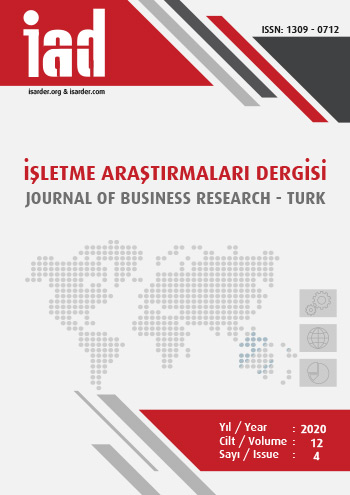Liderlik Yönelimlerinin Çatışma Çözme Stratejileri Üzerindeki Etkisi
The Impact of Leadership Orientations on Conflict Resolution Strategies
Author(s): Didem Öztürk Ciftci, Hülya ErkanlıSubject(s): Business Economy / Management, Tourism, Human Resources in Economy
Published by: Orhan Sağçolak
Keywords: Leadership orientations; People and task oriented leadership; Conflict resolution strategies;
Summary/Abstract: Purpose – The study aimed to determine whether the people-oriented leadership style or task-oriented leadership style of hotel managers have an impact on their approach to strategies to resolve conflict. Design/methodology/approach – The study population consisted of hotel managers of four and five-star hotels in the Middle and Eastern Black Sea Regions in Turkey. Data were collected between November 2016 and March 2017 via questionnaires created to obtain data regarding demographic characteristics of the participants, and questionnaires that include scales for determining leadership orientations and strategies to resolve conflict. Data obtained were evaluated by using descriptive statistics, correlation, and multiple linear regression analyses. Findings – The results showed that managers’ adoption of task-oriented and people-oriented leadership styles together have a significant effect on the integration, compromise, avoidance, and reconciliation strategies among the methods of conflict resolution; however, that they did not have a significant effect on the domination strategy. Discussion – The results of the study showed that task-oriented or people-oriented leadership styles have a significant effect on the integration, compromise, avoidance, and reconciliation strategies among methods of conflict resolution and in the relative ranking of these strategies. Task-oriented leadership style was in first place for integration, domination, and reconciliation strategies and people-oriented leadership style was in first place for compromise strategy. In sectors where customers are in direct communication and often face-to-face interaction with employees, such as tourism, the negative effects of not resolving a conflict by employees can be directly observed. Therefore, the authors consider that determining one of the factors that may minimize the negative effects of conflict and that is effective in choosing the right strategy for the organizational structure may have a positive effect on the organizational outcomes for such establishments.
Journal: İşletme Araştırmaları Dergisi
- Issue Year: 12/2020
- Issue No: 4
- Page Range: 3930-3946
- Page Count: 17
- Language: Turkish

